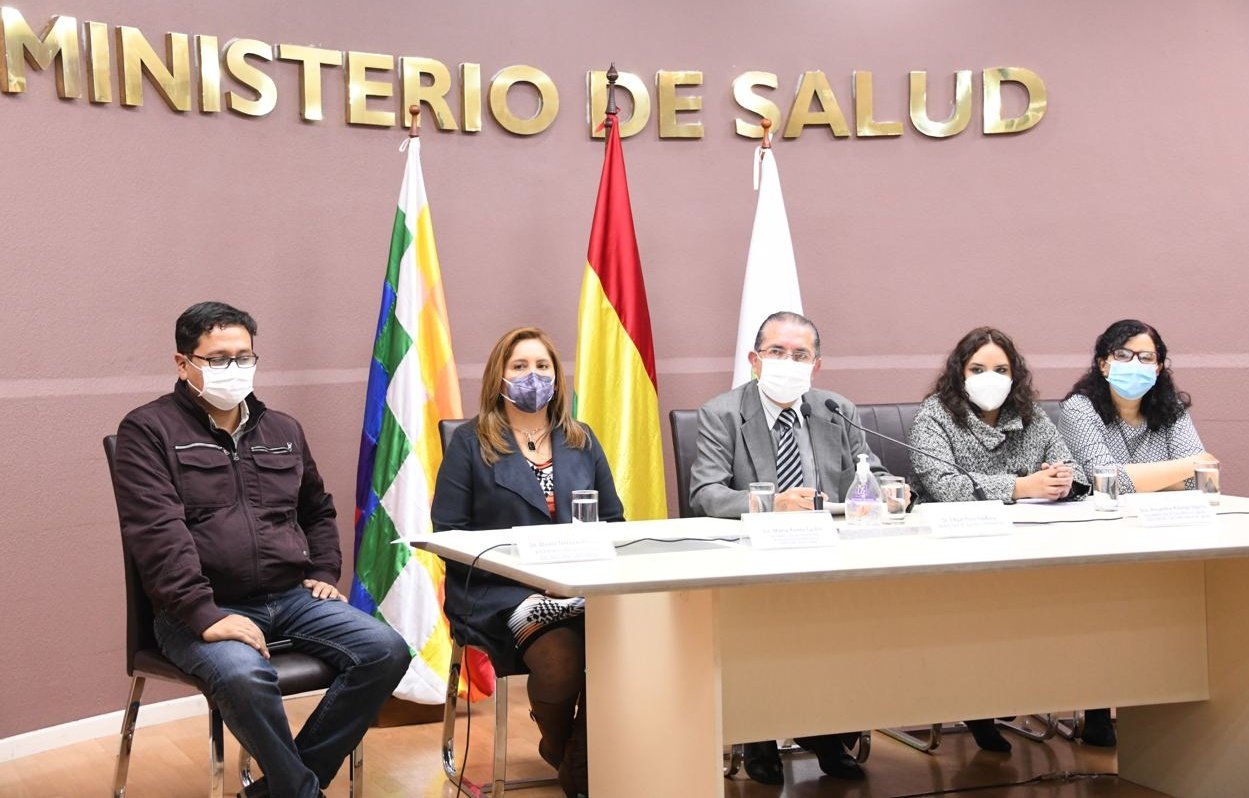
Spanish – Science goes one way, and Bolivia goes another. This is the only way to explain why the socialist government of Luis Arce has chosen to find in the herbs of mother earth the antibodies to fight the coronavirus as of December 1.
Eucalyptus, camomile, and matico are the “medicines” recommended by the Bolivian government to fight the disease that already totals 145,000 infected and 9,000 dead in the country since the beginning of the pandemic, the Ministry of Health stated on Twitter.
El Ministro #EdgarPozo explicó que se debe practicar responsablemente con las medidas de bioseguridad para evitar el contagio de #COVID19: uso del barbijo, lavado de manos permanente y distanciamiento físico. pic.twitter.com/0lGuBU0GUz
— Salud Bolivia (@MinSaludBolivia) November 29, 2020
For the spokesman of Arce, traditional medicine has a “very important action effect in the issue of the confrontation against COVID-19 in the country.” Therefore, he will promote its practice through a supreme decree that contains new preventive measures to avoid the increase of cases, reports the German news network Deutsche Welle (DW).
In a press conference in La Paz, the Bolivian Health Minister, Edgar Pozo, stated that the decree would impose the new biosecurity provisions where “the practice of traditional medicine and alternative medicine will be promoted and encouraged for the prevention, containment, treatment, and rehabilitation of COVID-19.”
Now the focus will be on “promoting the production and commercialization of natural products on the streets of the country based on medicinal plants used by ancestral doctors to make infusions or disinfectant sprays.”
This is how they propose to cope with the disease during Christmas since the initiative will be in effect from December 1 to January 15, 2021. The only announced protocol is the coordination with local authorities to control the quality and cost in the sale of medicines in pharmacies.
Immunization postponed
The use of herbs provides relief to Arce’s government. So far, the cabinet has not reported its preference for some of the vaccines projected on the market to immunize the population.
With the excuse that they avoid “making any definitive approach or signing contracts because the evaluations and tests are being completed,” Minister Pozo pointed this out on his web channel, denying that they are lagging in the process of acquiring doses.
Although he underlines that they are not “out of time” to negotiate the three million vaccines they require, La Discusión assures that Bolivia will postpone for the first quarter of 2021 the immunization of the population after calculating a second wave between March and April.
Double Talk
According to La Discusión, the Minister of Health said, “efforts are being made with the international community to acquire effective and safe vaccines for the Bolivian population.”
Although “there are fears that a second wave will arrive in the country after a serious peak between July and August that saturated the health and funeral systems,” the current leftist president Luis Arce has declared that “the risk of COVID-19 contagion is still latent,” the publication says.
France 24 data confirm that “in Latin America, Bolivia has the second-highest number of deaths per capita. The country reports 70 deaths per 100,000 inhabitants.”
The situation is attributed to the influx of air flights, mobility by public transport, and the activity of private banking, food businesses, and commerce.
More numbers reveal that the scenario looks with a reserved prognosis. Macro data estimates that Bolivia, with a population of 11 million people, registers 1,270.8 infected people for every 100,000 inhabitants. This makes Bolivia a country with a “high rate of confirmed coronavirus cases.”
The legacy of Evo Morales
Luis Arce is the political successor of Evo Morales. Besides their activism in the Movement Towards Socialism (MAS), both now share the defense of traditional medicine.
Two years ago, it was Morales who shouted that “it has been demonstrated that the coca leaf is food, it is medicine.” The controversy over his statements escalated when he maintained that “the coca leaf for the ‘gringos’ was poison, although in some times they also used the coca leaf for plundering natural resources,” highlights Cooperativa.
Twice a day, the former president confessed that he consumed three spoonfuls of coca leaf flour mixed with honey to “be healthy.” This practice is allowed by the constitution in force in the country since 2009, but “a part of the crops is diverted to drug trafficking for manufacturing cocaine,” the publication highlights.
In 2013, Bolivia re-acceded to the 1961 UN Single Convention on Narcotic Drugs, without renouncing the chewing and traditional use of coca leaves in its territory.
But the anti-drug convention establishes that “coca is a narcotic with alkaloids that can be transformed into cocaine and that’s why it maintains a ban on its export” and, although it accepted that the tradition of chewing the plant in Bolivia be respected, the United Nations Office on Drugs and Crime presented a report in which it accuses it of increasing cultivation from 12,000 to 23,000 hectares, a Cooperative review.
 Versión Español
Versión Español













